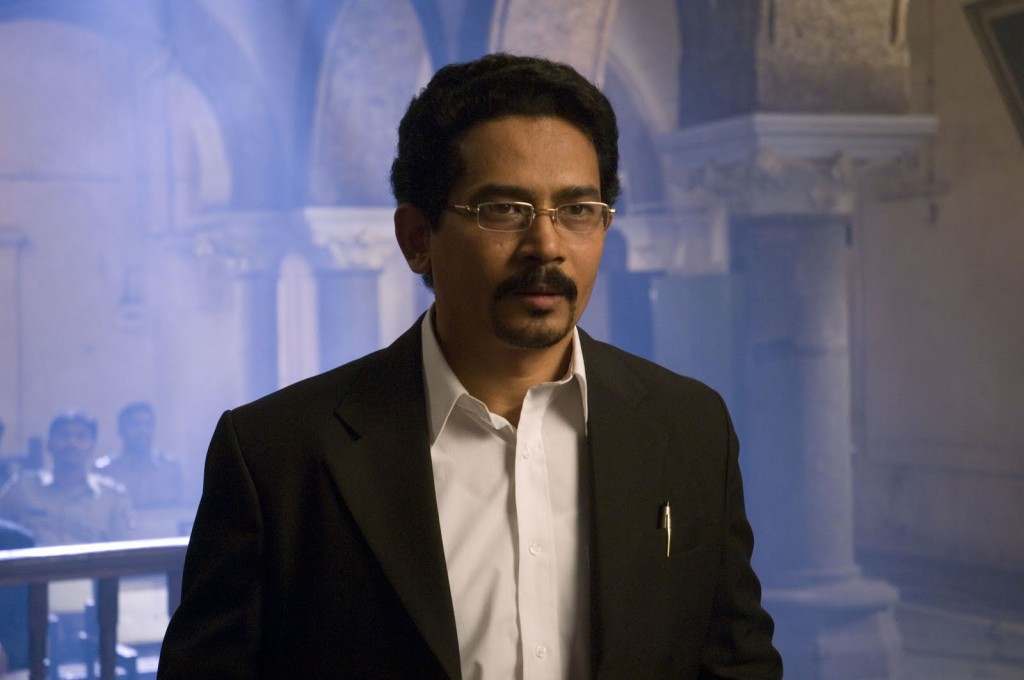A strong story base, some nicely handled human moments, two strong central performances make Sukhaant a reasonably watchable film and confirms the fact yet again that the true good work in Indian cinema is being done outside the superficial world of Bollywood. The film has its moments as it looks at a fiercely independent woman, who on becoming a helpless invalid, wants the right to be allowed to die with dignity.
Sukhaant, directed by Sanjay Surkar, looks at what happens when self- made, single mother Sitabai (Jyoti Chandekar) meets with an accident that deems her a quadriplegic. Her son, Pratap (Atul Kulkarni), a successful lawyer, makes it his life to take care of his bed-ridden mother. Even as her dear ones surround her with much love and attention, unable to live at other’s mercy, Sitabai awaits death everyday. Everyday, she pleads her son to not tie her down with his love and relieve her of her suffering. Pratap, unable and unwilling to grant her this peculiar wish, struggles to do the right thing as his mother shows no signs of recovery. When he can no longer bear to watch his helpless mother suffer, Pratap decides to move the court to grant his mother her wish to end her life…
Sukhaant effectively looks at the various issues surrounding mercy killing or euthanasia in India – the legal aspects, the normal perceptions of society towards euthanasia, how ethical is it really to grant someone the right to die just as we grant them the right to live, among others. The screenplay succeeds fairly in combining the research material into an engaging enough story and special mention must be made of the dialogue sequences which have a realness to them, like the mother’s birthday celebrations, for one, amongst many. Other sequences that stick with you include the one when the invalid Sitabai comes back to the village, which has a solid emotional wallop, or the outpouring of her feelings to the psychiatrist as to how an invalid and dependent person begins to hate oneself for not just being a burden but ruining the lives of his or her near and dear ones as well.
That said, there are moments, which are extremely unconvincing. The outburst of the wife after Pratap interrupts their lovemaking to check on the mother seems rather sudden as do all the problems the two have in their personal and professional lives. Especially, as enough of their time now goes in looking after the invalid old lady and disrupts their otherwise regular lives. This should have been built into the story in stages and given a gradual flow rather than brought in all at once. The use of para-dubbling for Pratap’s plea to the Supreme Court, since he’s made it in English, looks and sounds extremely tacky.
The two central performances aid the film greatly. Jyoti Chandekar is simply astounding. What a fine performer she is! She captures every mood of her character perfectly right from scenes highlighting her fierce independence, social and financial, to those showing her total helpnessness, vulnurability and despair at being dependent on others. Just see in her scene at the hospital in the end when she experlty combines her depair with anger at feeling betrayed by her son or her desperate plea to her daughter-in-law that she has no complaints against her after the latter got shouted at by Pratap for leaving the old lady alone. To put it simply, the film is unthinkable without her stunning act. Atul Kulkarni is reliably efficient and plays the perforct foil to Chandekar. He realizes it is her film and lets it be. Still there are enough instances where you see his incredible acting ability like the early scene in the hospital where he tries to cheer her up even though it is killing him inside. A lesser actor would have made a mess of this obvious melodramatic moment but not Kulkarni. Kavita Medhekar as Atul’s wife, Veena, has her moments and they are more than adequately supported by the supporting cast.
Where the film really falters is in its execution betraying a lack of cinematic craft. The film is, unfortunately, rather tackily made, is unable to get over its budget limitations and its technicalities – the shot-taking, the camerawork, sound design and especially the awful overblown background music bring it down a notch or two. And this sometimes affects the otherwise extremely well written scenes, which do not have the impact they should have had only due to clumsy execution. What could have been a great film ultimately ends up as a good effort with some good moments and performances. Still, worth a watch if you like good human stories with real people against the fake and larger than life razzle dazzle of current Bollywood.
Marathi, Drama, Color


